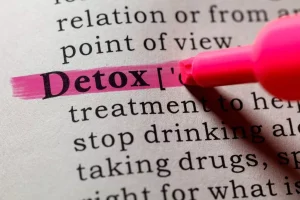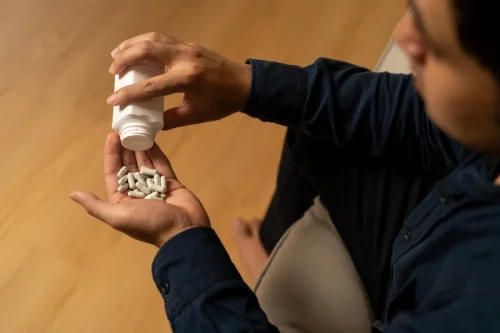
It is important, however, to assess whether the patient who presents with acute alcohol intoxication has ingested other drugs in addition to alcohol, because these agents may further suppress the central nervous system and alter the approach to treatment. The acutely intoxicated patient may exhibit some agitation as part of the presentation, but, again, management is primarily supportive and best managed nonpharmacologically. In the rare situation in which pharmacologic intervention is needed for management in a medical setting, most specialists would advise use of a rapid-onset and short-acting benzodiazepine. It’s important to remain calm when confronting your teen, and only do so when everyone is sober.
Alcohol-Related Consequences
If your teen is displaying one or more of these symptoms, he or she may have an alcohol use disorder that requires teen alcohol rehab. A substance abuse professional can perform an assessment and determine the extent of the problem and what type of treatment is necessary. Binge drinking is dangerous regardless of a person’s age, but the effects of alcohol on teens can be especially devastating. teenage alcoholism Teens who drink are at risk of a number of negative outcomes, ranging from brain damage to death. In a national survey, 54% of 8th graders, 71% of 10th graders and 86% of 12th graders reported that it would be fairly or very easy for them to obtain alcohol. However, medical professionals have not approved any of these medications to treat alcoholism in people less than 18 years of age.

How Much Is a Drink?
- Sign up to get tips for living a healthy lifestyle, with ways to fight inflammation and improve cognitive health, plus the latest advances in preventative medicine, diet and exercise, pain relief, blood pressure and cholesterol management, and more.
- But you may find yourself in a situation where your child has lost control, and you need to act.
- And although even more is understood about the role and contribution of genetics, this knowledge still does not tell the entire story.
- Although binge drinking can have negative health consequences, not all people who binge drink are necessarily addicted to alcohol.
- The more we know about how alcohol affects the adolescent brain, the more we can inform the conversations about alcohol that we have with teens.
- Although prevalence rates are at historic lows, alcohol use continues to be widespread among adolescents, and pediatricians must screen for underage and family alcohol use in health assessment visits.
- Drinking problems affect families all over the world from every different background.
Adolescents who are warned about the dangers of alcohol by their parents are less likely to start drinking during their teenage years. It is critical for teenagers to get information about alcohol use and abuse from trusted sources such as parents, teachers, coaches and other strong role models. If teens do not receive strong and consistent messages about the dangers of adolescent alcohol use, they will not have any reason to turn down a drink when it is offered to them.

Why do some teenagers drink?
- Allow your teen to talk and open up about their thoughts and opinions, and try to listen without being critical, disapproving, or judgmental.
- The second stage of alcohol and other drug use ranges from experimentation or occasional use to regular weekly use of alcohol, tobacco, inhalants, or other drugs.
- If your teen is in an unconscious or semiconscious state, their breathing is very slow, their skin clammy, and there’s a powerful odor of alcohol, there’s a strong chance they may have alcohol poisoning.
- Age, sensitivity to alcohol (tolerance), gender, speed of drinking, medications being taken, and amount of food eaten recently can all be factors.
- NCANDA has already been able to confirm impressions from prior smaller studies that adolescent heavy drinking appears linked to accelerated gray matter decline,40 disrupted functional connectivity,30 and reduced cognitive performance.
- Studies have shown that the earlier your child uses alcohol, the more problems they’re likely to experience later in life, so it’s never too early to start the conversation.
Significant statistics regarding alcohol use in teens include that about half of junior high and senior high school students drink alcohol on a monthly basis, and 14% of teens have been intoxicated at least once in the past year. Nearly 8% of teens who drink say they drink at least five or more alcoholic drinks in a row (binge drinking). Screening for alcohol and other drug-use problems within families must begin with a careful and detailed psychosocial history.
Predictors of Underage Drinking
- Less commonly, vomiting and midabdominal pain may be caused by acute alcoholic pancreatitis; diagnosis is confirmed by the finding of elevated serum amylase and lipase activities.
- Evaluate whether you recognize any of the following symptoms in yourself.
- If you’re a child or teen and are worried about your own or a friend’s drinking, it’s important to reach out to an adult you trust.
- And – although not recommended – the CMOs also say if children do drink alcohol, it shouldn’t be until at least 15 years of age.
For more information about alcohol’s effects on the body, please see the NIAAA Interactive Body. It should be clearly understood that use of alcohol by any individual under the age of 21 is a serious problem. In most states and local jurisdictions, use of alcohol by underage individuals is illegal, though there are a few exceptions.
The practice of teens drinking with parents sends inconsistent messages to teenagers about alcohol use and should be avoided. When a teenager is faced with instances that influence teen alcohol use, such as peer pressure from other teenagers who are making bad decisions, a clear perception of the dangers of alcohol use will guide them towards saying “no”. The Recovery Village aims to improve the quality of life for people struggling with substance use or mental health disorder with fact-based content about the nature of behavioral health conditions, treatment options and their related outcomes. We publish material that is researched, cited, edited and reviewed by licensed medical professionals.
Treatment Options
The information we provide is not intended to be a substitute for professional medical advice, diagnosis or treatment. It should not be used in place of the advice of your physician or other qualified healthcare providers. A general psychosocial assessment of an adolescent’s functioning is the most important component of a screening interview for alcohol misuse, abuse, or dependence. The information gathered can lead to a determination of whether alcohol or other drug use is a cause of behavioral dysfunction and to assess the degree of impairment. Also, since underage drinkers haven’t yet learned their limits with alcohol, they’re at far greater risk of drinking more than their bodies can handle, resulting in an alcohol overdose or alcohol poisoning when they binge drink.
Why Does Teen Alcohol Abuse Happen? And What Can Parents Do?
